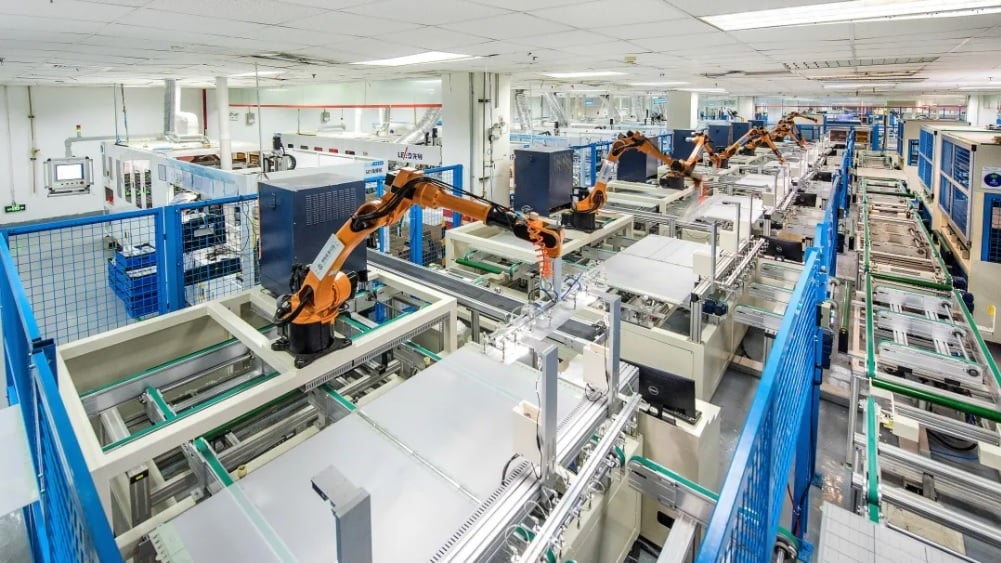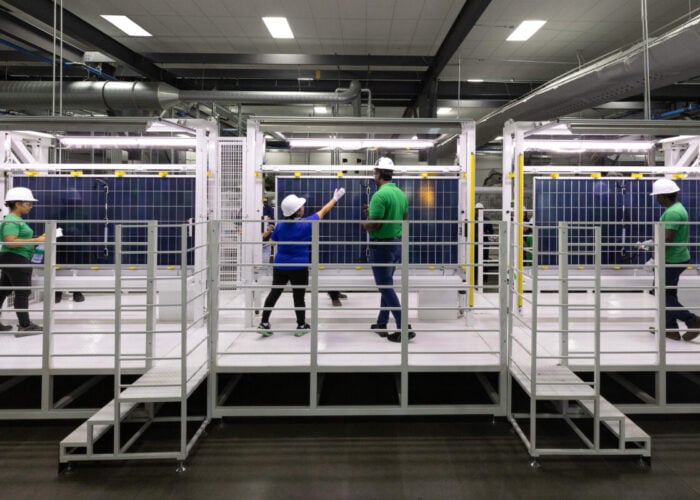
Major Chinese module manufacturer Trina Solar’s latest 210mm n-type industrial tunnel oxide passivated contact (i-TOPCon) module has achieved a maximum power output of 740.6W, a record for this type of module.
While the module is not yet commercially available, its manufacture incorporates a number of what Trina Solar called “advanced processes,” including laser-induced firing and edge passivation, which have improved the efficiency of the module.
Try Premium for just $1
- Full premium access for the first month at only $1
- Converts to an annual rate after 30 days unless cancelled
- Cancel anytime during the trial period
Premium Benefits
- Expert industry analysis and interviews
- Digital access to PV Tech Power journal
- Exclusive event discounts
Or get the full Premium subscription right away
Or continue reading this article for free
German certification and certification firm TÜV SÜD confirmed the power output of the module, and the company notes that this is the 26th time that its products have set records in power conversion efficiency and power output.
“Every breakthrough is the result of our relentless pursuit of technological innovation and excellence,” said Gao Jifan, chairman and CEO of Trina Solar and director of the company’s State Key Laboratory of PV Science and Technology.
“This sustained leadership in i-TOPCon technology underscores Trina Solar’s competitiveness and drive in spearheading the 700W+ era and 210mm n-type advanced technology platform.”
The news follows Trina Solar’s launch of an i-TOPCon module for use in the commercial and industrial rooftop sector earlier this year. While the company did not announce the power conversion efficiency of its latest module, its earlier i-TOPCon product has a conversion efficiency of 22.7%, while it recently increased the efficiency of its flagship Vertex N range of modules to 23.2%, as Trina Solar looks to improve the efficiency of its products.
There has been considerable innovation in the module manufacturing space in recent months, with JinkoSolar announcing a ‘zero carbon’ TOPCon module. TÜV Rheinland, another member of the TÜV Association, accredited the manufacturing processes as using renewable power, as module manufacturers look to innovate in the manufacturing processes.
Edge passivation, the process used in the production of Trina Solar’s latest module, has seen particular attention in the module design space. Last year, researchers from DAS Solar and the Chen Group developed an “organic passivation film,” which can be used in module assembly, and could mitigate some of the conversion efficiency losses endured during the cutting and separating processes necessary in the production of shingle panels.






